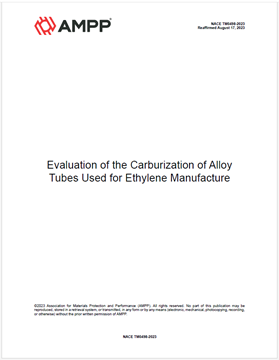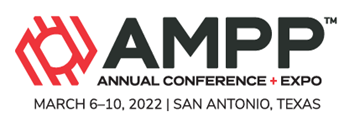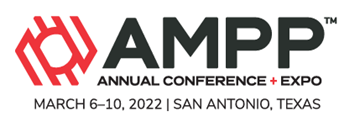Search
Products tagged with 'cracking'
View as
Sort by
Display
per page
NACE TM0498-2023, Evaluation of the Carburization of Alloy Tubes Used for Ethylene Manufacture
Product Number:
NACE TM0498-2023
$109.00
Performance of API 5L X65 in 138 MPa Supercritical CO2
Product Number:
51323-18863-SG
Publication Date:
2023
$20.00
Performance of Thermally Sprayed Aluminium in 10MPa Supercritical CO2
Product Number:
51324-21069-SG
Publication Date:
2024
$40.00
Recent Advances In Depth Assessment Of Stress Corrosion Cracking Using Tangential Eddy Current Array On Carbon Steel Pipelines
Product Number:
51322-17983-SG
Publication Date:
2022
$20.00
Reduction Of Conservatism In SSC Testing For Sour Gas Well Tubulars
Product Number:
51322-17776-SG
Publication Date:
2022
$20.00
RP0296-2004 (Chinese), Guidelines for Detection, Repair, and Mitigation of Cracking of Existing Petroleum Refinery Pressure Vessels in Wet H2S Environments
Product Number:
21115-SG
ISBN:
1-57590-013-0
Publication Date:
2004
$179.00
RP0296-HD1996 Guidelines for Detection, Repair, and Mitigation of Cracking of Existing Petroleum Refinery Pressure Vessels in Wet H2S Enviornments-HD1996
Product Number:
21078-HD1996
ISBN:
1-57590-013-0
Publication Date:
1996
$179.00
RP0296-HD2000 Guidelines for Detection, Repair, and Mitigation of Cracking of Existing Petroleum Refinery Pressure Vessels in Wet H2S Enviornments-HD2000
Product Number:
21078-HD2000
Publication Date:
2000
$179.00
RP-04-72-HD1976-SG, Methods and Controls to Prevent In-Service Cracking of Carbon Steel Welds in P-1 Materials in Corrosive Petroleum Refining Environments-HD1976
Product Number:
RP-04-72-HD1976
Publication Date:
1976
$179.00
RP0472-HD1987-SG-Methods and Controls to Prevent In-Service Environmental Cracking of Carbon Steel Weldments in Corrosive Petroleum Refining Environments
Product Number:
21006-HD1987
Publication Date:
1987
$179.00
RP0472-HD2000-SG-Methods and Controls to Prevent In-Service Environmental Cracking of Carbon Steel Weldments in Corrosive Petroleum Refining Environments-HD2000
Product Number:
21006-HD2000
ISBN:
1-57590-114-5
Publication Date:
2000
$179.00
SP0296-2016 (formerly RP0296), Detection, Repair, and Mitigation of Cracking in Refinery Equipment in Wet H2S Environments
Product Number:
21078-SG
ISBN:
1-57590-013-0
Publication Date:
2016
$179.00












